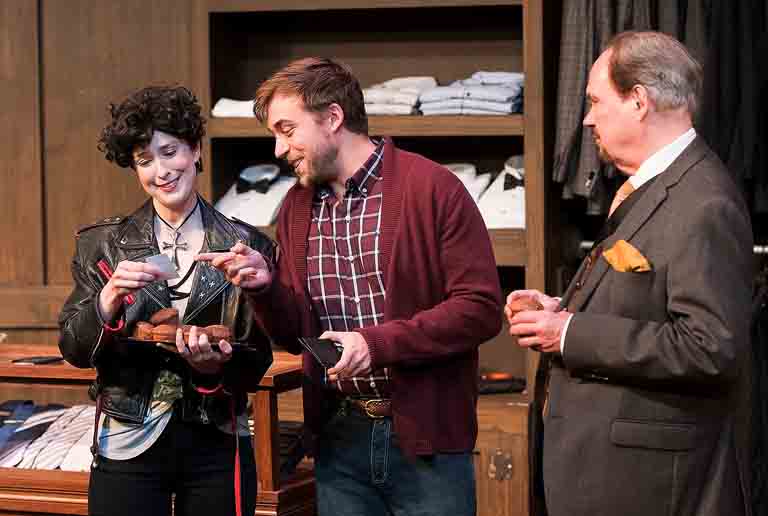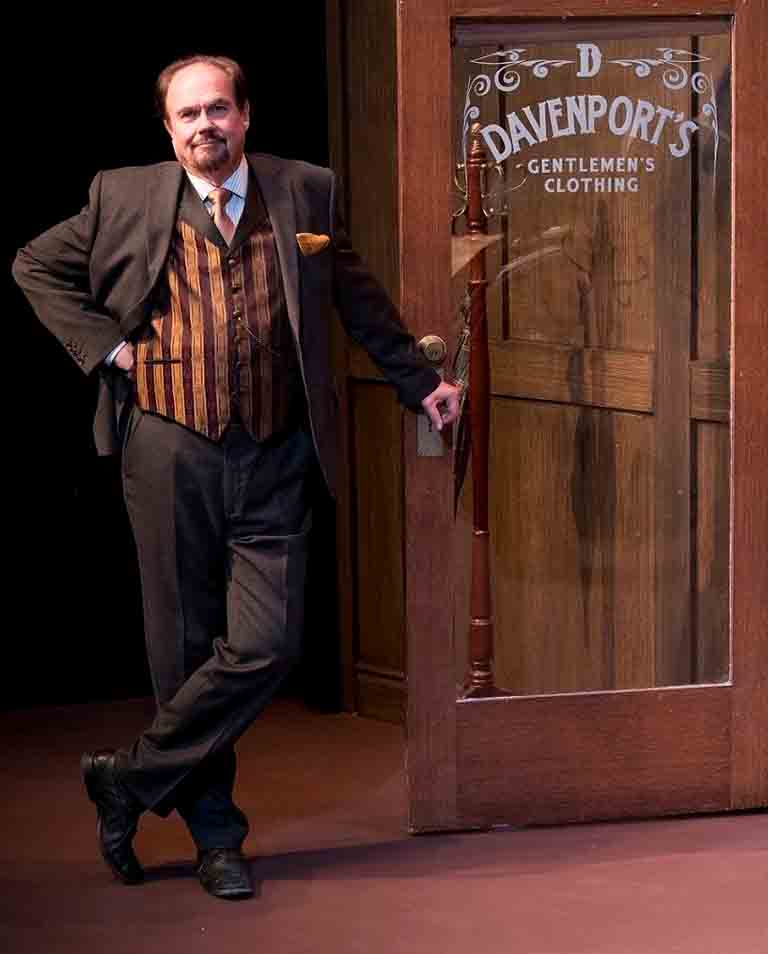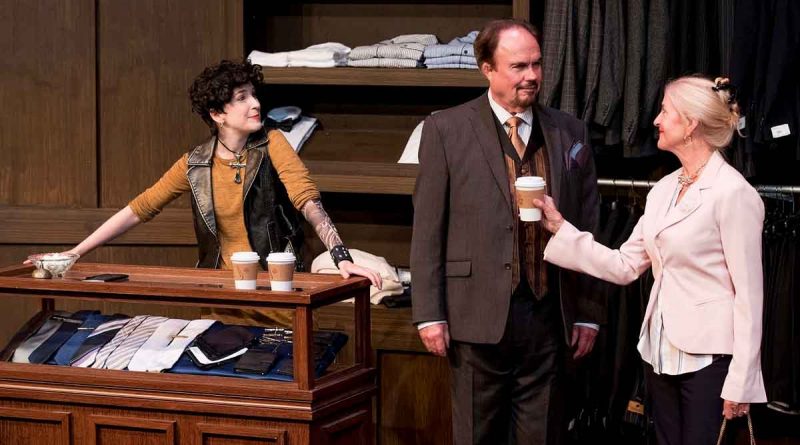Gentleman Clothier
By John Swartz
“How do you know that?” said Sophie.
“I read,” said Norman.
Norm Foster writes some funny plays. That’s a given. You go to the theater, you sit and watch a slice of life, how characters deal with some hitch and come out the other side relatively whole, changed, but whole – and the cast has a bit of fun with the process of moving around the obstacle. You leave the theater thinking you had a good time laughing at the antics of characters, some of whom resemble people you do know in real life because Foster is good at typecasting on paper.
But you don’t often go away thinking, “Hmm, that was an interesting take on a life question I never thought of.” This script is not typical Foster and when you see Gentleman Clothier at the Opera House you are going to re-evaluate the way you look at your life. Everyone of us has had a moment (or stacked together an hour or week) when we’ve thought – if only I could…

For some people, granted usually older people in a voting booth, it’s the thought that some time long ago, usually before birth, was a simpler, better time and it sucks living in the wrong era. This is our Norman Davenport (played by Bill Colgate). He is opening a men’s clothing store, gets maneuvered into hiring a tailor, Sophie Tomesko (Alison MacKay), before he knows whether he can afford to hire anyone (within minutes he then hires a stock person, Patrick Markham (Chris George) because of a sob story aimed at the heart and decency). Opening day is two weeks off. Davenport isn’t the best businessman, though it must be said he is more modern on some issues – like Sophie being gay, it matters not to him.
His shop isn’t going to be trendy, only the best of classic suits and accessories because that’s the world he was brought up in, quality and class. This is where his sense of being in the wrong time begins; the late 1800s was the epitome of fashion sense, manners and all else.
So the most important message Foster is laying out –be careful what you wish for. The complicating factor in Davenport’s life, his first customer, Alisha Sparrow (Joan Bendon) barges in demanding a suit be made for her husband. Of course Davenport immediately starts to fall for her. At a key moment Davenport makes his wish out loud.
You go for a coffee and a smoke, return to your seat and the timeline has shifted. Now Foster starts to make us question the wisdom of wishing for something we can’t possibly know all the details of, how the what if, if real, won’t be the cure sought. Davenport begins to realize romanticism of a time he thought was better isn’t exactly how he imagined it. He wants to go back to the future where it is the best of times.

There is a secondary theme running through the script and it’s about language. One could go back to the top of this review to see the tie in here. Foster takes some swipes at those who use words they don’t know the meaning of, you know, the half of the population George Carlin called stupid – and why should we adopt their standards – half of whom work in 21st century media and communications (it seems). Davenport , the guy who wishes for a better time when people spoke more eloquently, is the one correcting and there are several passages where he does.
It’s not overt because the best writers and speakers are adept at slapping people with a wet noodle (kind of like how Don Evans did at council meetings) and make them feel good about being corrected and only because the sharpest minds recognize the rebuke and targets aren’t in that class. Foster really is bugged about how we use language, if you pay attention to what the characters, specifically Davenport , are saying I think he’s trying to be instructive to many of the people who make up his audiences.
The cast did an excellent job with their material, especially working with it the way director Jesse Collins wanted to portray it. Bendon said after the performance Collins spent a lot of time with them digging into the language of the script, making the delivery seem more natural, not going for the laugh because its inherent and concentrating being the characters and situations which make the lines funny. This is opposite of the way many directors would have gone because with a Foster script its usually easy to just take the lines at face value for their comedic worth.
And Collins extended his vision of the script to making it feel more like real life with imagining the set with less trouble. He went across the street to Dapper Depot for ideas and ended up with a fairly good replication of the clothing store, which Brian Halbot executed very well.
The Gentleman Clothier runs to August 9 and you can get tickets here.
(Photos Submitted)
![]()



![]()




